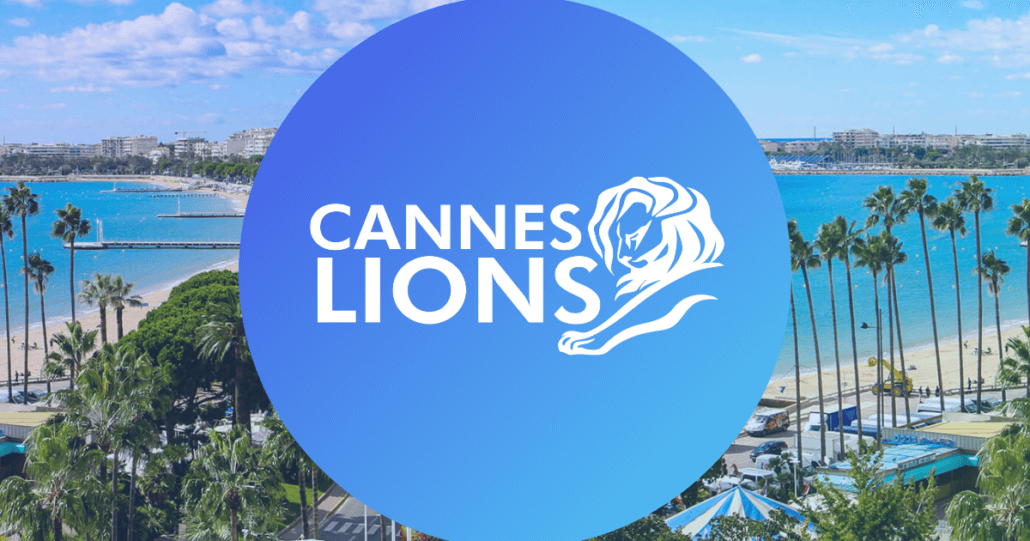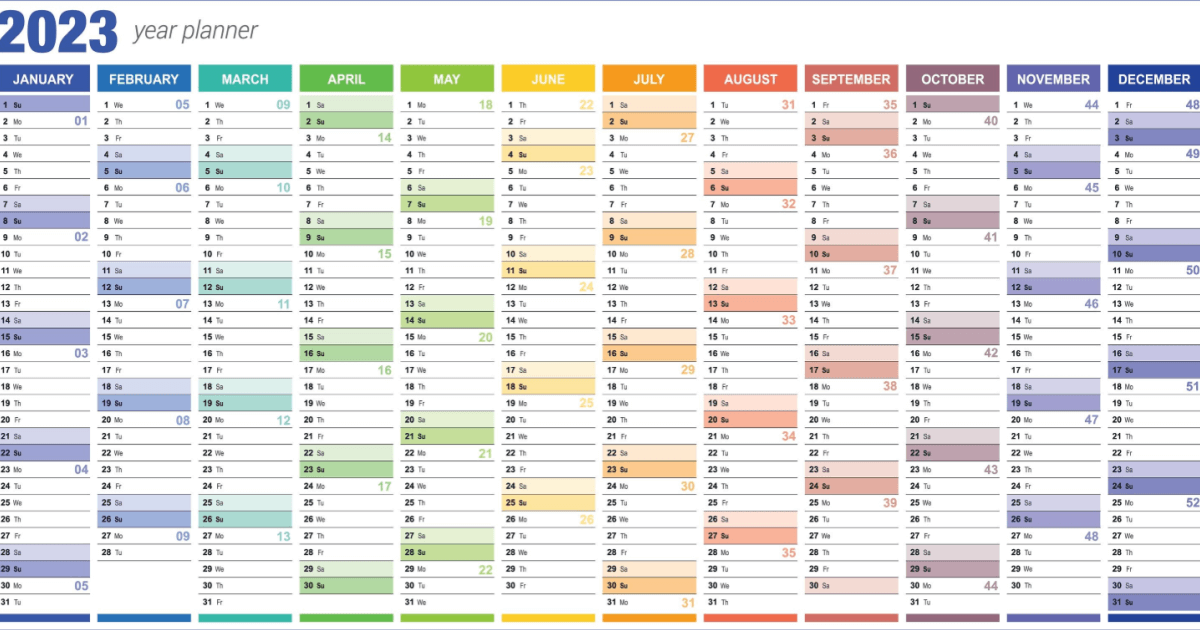March 3, 2023
Gen Z — this socially-conscious, extremely diverse generation wields $360 billion in disposable income and is prepared to use their buying power, but marketing to them can be tricky.
We’ve broken this guide into the different marketing tactics required to win Gen Z’s repeat business — arguably the trickiest segment to successfully market to — and how marketing to this generation of consumers differs from other age groups.
Chapters
- How is marketing to Gen Z different from other generations?
- 8 ways to attract Gen Z customers
- Marketing to Gen Z demands careful experimentation
How is marketing to Gen Z different from other generations?
The difference in marketing trends across Gen Z and other age groups boils down to this: Generation Z is the first generation to be complete strangers to life without the internet. This digital upbringing has turned them into tech-savvy consumers who take their sweet time researching products and brands.
Considering they’re such discerning consumers, marketing to Gen Z requires you to be authentic and trustworthy — young shoppers won’t settle for anything less.
Gen Zers are also the most culturally diverse generation, and like the millennial generation before them, they expect you to show social responsibility by being inclusive and supporting important causes. Baby boomers? Not necessarily.
As Andrew Roth, Gen Z founder of Dcdx, puts it:
“The biggest [difference] is the onset of technology and when that came up in the lives of Gen Z, and the role that’s had on shaping how we behave and who we are. Convenience is not a want or a fun [thing] to have; it’s who we are — we were born with Google. We had everything at our fingertips. Brands that are slow are nonnegotiable for our generation.”
To navigate all of these gaps and tap into Gen Z’s spending power, Roth advises simply talking to them. These conversations will help marketers understand this generation’s perspectives and sell to them effectively.
8 ways to attract Gen Z customers
No brand wants to be meme’d, but embodying the values that Gen Zers hold dear without coming off as phony is easier said than done.

These young consumers grew up online, so they have short attention spans and the uncanny ability to sniff out a marketing gimmick — posing a big challenge for every marketer.
To adapt your traditional marketing strategy to Zoomer consumers, pay attention to their perspectives and involve them from top to bottom.
- Promote user-generated content
- Partner with influencers
- Take a stance on social issues
- Show authenticity and integrity
- Use short and snappy video content
- Add up-and-coming platforms to your strategy
- Leverage the power of email marketing
- Build a community around your brand
1. Seek out and promote user-generated content
Gen Z prefers seeing actual customers in promotional materials. As many as 82% trust a brand more if they use real customers in advertising, while only 26% of respondents trust a company more if they feature paid spokespeople.
Considering 70% of Gen Z say product videos and photos are particularly helpful when making purchasing decisions, marketing to Gen Z should include a user-generated content (UGC) strategy that goes beyond written reviews. And thanks to social media, it’s easy to encourage your customers to share their experiences with your product.
“We reached out to influencers and customers and began asking them to create hauls and unboxing videos that included our iconic pink packages. After a few weeks, it became a viral trend that was all over TikTok,” says the CMO of clothing company Edikted, Dana Israeli, in an interview with Glossy. “The customer wanted to be part of the movement and the community, and without even having to ask them, they all joined in.”
You can boost UGC on social networks by creating challenges or contests or even coming up with your own micro-holidays. Ahead of the 2021 holiday season, Target launched the #TargetHoliday hashtag with a cheerful Reel to celebrate festive Target runs.
These micro-holidays don’t need to be super unique — keeping them simple is more important, so your Gen Z audience can easily participate. But you shouldn’t stop at highlighting UGC only on social media platforms.
For example, through Retail Syndication, rug company Nourison shared visual UGC from social media to different retailer sites like Target. Coupled with ratings and reviews, its UGC strategy resulted in a 4x increase in conversions and a 3x increase in revenue.
Fitness brand Takeya has also had impressive results with displaying UGC on its website, leading to a 58% conversion boost and a 40% increase in revenue per visitor.
The lesson to marketers: Gen Zers love to hear from real people who’ve used your product, not just paid voices.
2. Partner with nano and micro-influencers
Although Gen Z favors real customers in advertising, this doesn’t mean you should give up on influencer marketing. Influencers still have influence (pun intended) — especially where smaller influencers are concerned.
Nano (~1K-10K followers) and micro-influencers (~10K-100K followers) usually interact more with their audience, which leads to an engaged following. This engagement creates trust and a personal relationship more prominent influencers often lack with their followers.
In fact, nano and micro-influencers have the highest engagement rates on Instagram, between 10% and 12%. And it doesn’t hurt that they charge brands less than their more famous counterparts.
As for influencers’ relationship with Zoomers, they wield considerable power. Gen Z is more likely than previous generations to purchase based on an influencer’s recommendation: 14% in the 18-24 age group and 13% in the 13-17 age group have bought a product due to influencer marketing. And one out of four Gen Zs says micro-influencers with “loyal and highly engaged audiences” are key for developing new trends.
Companies that have teamed up with smaller influencers include major brands like Dunkin’ and Ford.
Ford Canada contacted travel blogger Cailin O’Neil (8.7K Instagram followers) to promote the 2020 Ford Escape Titanium. The promotional post has a 2.6% engagement rate.

Dunkin’ (formerly known as Dunkin’ Donuts) specifically sought out nano and micro-influencers on Instagram for its espresso campaign. All influencers featured had audiences under 50,000, with nano-influencers showing more engagement on their posts.
Influencer Vanessa Lace, for instance, who at the time of the campaign had 3,000 followers, had a 26.1% engagement rate on her Dunkin’ post.

Since the marketing trend of using smaller influencers is expected to continue, you shouldn’t underestimate the importance of finding the right influencer for your brand.
And you shouldn’t be afraid to turn your own employees into influencers either. Once you finally discover the influencer who ticks all the boxes, don’t take full creative control over the promotional posts. Zoomers dislike being sold to, and creators should retain their unique voice in sponsored content to avoid sounding salesy.
“[Micro-influencers] have an intimate community where they’re likely connected personally to many of their followers. When designing a campaign with them, don’t be generic. Add depth, personality, and individualization, and offer some creative control to them to be certain that their voice is protected in the process and message,” says Megan Rokosh, global CMO at Havas Health & You, in an interview with Forbes.
3. Take a stance on social issues
Gone are the days when brands could avoid addressing pressing social issues, such as systemic racism or climate change.
To the new generation, no stance is also a stance — and it can severely damage your reputation. 31% of Gen Z reports that they stopped buying from a brand that’s part of a social cause they don’t align with. Similarly, another 76% of Gen Z find it important for brands to celebrate diversity.
A 2022 YPulse survey also showed that the top issues for Gen Z are mental health, abortion/birth control, gun violence, and climate change — and they’d like to see brands involved in tackling these issues.
But there’s a fine line between showing social responsibility and empty “wokevertising.” Young people are experts at sniffing out the latter and don’t respond well to brands using social justice for pure self-promotion.
Brands that learned this the hard way include Listerine, who came under fire for launching a rainbow-colored mouthwash bottle to celebrate Pride month. Critics claimed the marketing campaign made light of an important celebration just to sell a product, using the LGBTQ community to put on an inclusive image.
Pepsi’s now-infamous Kendall Jenner ad is another textbook example of brands being too eager to latch onto social justice for promotional purposes without actually walking the talk. So how can you take a stance on social issues without veering off into “wokevertising” territory?
For one, you can share how your brand embraces social responsibility and sustainability in every aspect of your business. Take plant-based food company Impossible Foods’ yearly Impact Reports. Its 2020 report provides a detailed overview of how the company supports employees and community members, from promoting diversity and inclusion to supporting food banks during the pandemic.
Gen Z also wants the brands they support to stand up and show solidarity in times of crisis. In 2020, Fenty Beauty announced they would shut down their business for a day to support the Black Lives Matter movement and mark Blackout Tuesday.

The company went one step further by donating to organizations fighting racism and encouraging their followers to take a stand against racism and discrimination.
American Eagle’s Aerie brand is also one big retail name that promotes body positivity and diversity and supports young activists. Through their #AerieREAL changemakers project, the company gave a group of 20 activists a $20,000 grant each to power change in their communities.

Dick’s Sporting Goods is another good example. The brand put Gen Z girls at the forefront of their Girls’ Power Panel — a team of 13-17 year-olds assembled to help them understand issues faced by women in sports. The young panelists also shared their thoughts on the brand’s products.
The key to avoiding performative activism is carefully considering the causes you support and ensuring your brand’s values align with Gen Zers. You don’t have to support all the causes but make sure to go all in on the ones you do.
4. Display integrity and authenticity
A 2021 Ernst & Young survey about Gen Z found young people value “trust, transparency and authenticity” and will turn away from anything or anyone that appears inauthentic. Another reason why UGC works so well.
“‘Authenticity’ has been shown in Gen-Z research as a critical element in how they evaluate products and services. Gen-Z consumers want to be able to trust the brand, understand what it stands for and be confident that they aren’t being sold a bag of goods,” says OptiMine CEO Matt Voda about marketing to Gen Z in a recent Forbes interview.
Admittedly, “integrity” and “authenticity” can quickly turn into buzzwords without meaning. In a practical sense, embodying these values means treating your customers as more than just a source of profit and not sacrificing long-term trust for a short-term gimmick.
Skincare brand Paula’s Choice is a textbook example of doing authenticity right on their digital marketing channels. One of the brand’s TikTok videos captioned with “Pores are normal & real skin has texture!” promotes body positivity and rejects the idea that flawless skin is a realistic beauty standard.
@busezeyneppp Rolex | Afrika 🫓🥚 #eggroll #rolex #africanfoodie #breakfa #eggrecipe #recipeideas #africa #kahvaltılık #paza #cooking #chef #asmr ♬ sure thing – luana
In recent years, numerous brands have also ditched using Photoshop in their marketing campaigns to appear more genuine. Plus, organizations are considering better ways to leverage Black American culture and language without exploiting it.
To make sure its back-to-school campaign was authentic enough, Dick’s Sporting Goods once again went above and beyond in engaging Gen Z. Not only did they feature Zoomer influencers in the ad campaign, but they also had young creators advise the company on the campaign.
From the music to the outfits, the influencers offered expert opinions on how the brand can best adapt its messaging to appeal to a young audience without appearing inauthentic.
While brand integrity is important to people from all generations, Gen Zers are digital natives who don’t hesitate to share their thoughts on the internet when a brand disappoints them. With recent research indicating 57% of Gen Z have less brand loyalty now compared to the pre-pandemic era, there’s little room for error.
5. Create short and snappy video content
Gen Z is known for having a penchant for videos on their favorite social media apps, which they can easily access on their smartphones. According to eMarketer, the most popular social networks among Gen Z are Snapchat, TikTok, and Instagram — all apps that rely heavily (if not exclusively) on short-form video content.
Snapchat has a 60-second video limit, and so do Instagram Reels. TikTok only recently expanded the limit from 60 seconds to three minutes, but the platform is still renowned for its bite-sized videos.
The short video format of Reels, Snapchat, and TikTok means their user base has grown accustomed to content that caters to their short attention spans and doesn’t beat around the bush with lengthy introductions. It also needs to be engaging and feature music, special effects, or fun challenges users can copy.
Industry giant Procter & Gamble did just that as they expanded their social media marketing on TikTok with a music challenge.
“On TikTok, we’ve actually recently launched an exciting campaign partnering with Jason Derulo, the very famous rapper. He wrote a rap that featured Bounty in it. So we invited consumers and other rappers and influencers to play back this rap which was featuring Bounty and got us lots of great Bounty mentions.” says Janette Yauch, brand vice president of Bounty and Puffs at Procter & Gamble.
In addition to creating challenges, you can take an educational or funny angle when building your video content calendar.
In a promotional video on Sephora’s Instagram account, skincare brand Glow Recipe offered a quick tutorial that clocks in at just 25 seconds.
When Domino’s launched their “New Bigger Better” pizzas in Norway, they ran a tongue-in-cheek Snapchat campaign about the size of their new pizzas. One of the videos, for example, shows a man struggling to drive with the pizza boxes in his car.
LinkedIn is also not left out of this video party. Though the business networking channel is not a short-form video platform, it has a video feature that lets users post three-second to 15-minute videos. LinkedIn is popular with Gen Z audiences who use it to “fuel their careers” and pursue professional success.
As you explore different apps for marketing to Gen Z, remember it’s best to create videos from scratch for each platform rather than recycling them. For example, in 2021, Instagram announced it would suppress Reels featuring watermarks from other apps such as TikTok.
6. Add up-and-coming platforms to your Gen Z marketing strategy
Outside of social media, Gen Z is gathering on digital communication platforms like Discord and Twitch, whose popularity exploded with the outbreak of the pandemic. Unable to see their friends in person, Gen Z turned to online spaces where they could connect with others over shared interests. In response, companies are developing innovative ways to reach their young audiences on these platforms.
Often referred to as “Slack for Gen Z,” Discord is a chat platform where users hang out on servers related to different topics — like Minecraft or movies. While Discord has a reputation for being a gaming platform, 80% of current users use it for non-gaming purposes in addition to gaming. Part of Discord’s appeal is an ad-free experience, but brands have nevertheless found ways of connecting with their customers on the platform.
Clothing retailer Hot Topic entered the Discord space by creating a server focused on anime, relying on a shared interest that users are already likely to talk about. Fast food company Jack in the Box took the digital event route, creating a virtual concert and chat rooms targeting the visitors of the San Diego Comic-Con.

Brands that market to Gen Z are also flocking to the live streaming platform Twitch. Almost half of their user base are people in the 18 to 34 demographic, who tune in to virtual events an average of three times a day. According to Twitch, 64% of their users also buy products based on influencer recommendations.
Like Discord, Twitch’s platform was once most popular among gamers but now also hosts DJ sets, cooking shows, and more. Twitch does allow advertising, and businesses can partner with creators through affiliate programs or run display and video ads.
Beauty brand E.l.f. has been advertising heavily on Twitch, first through an influencer partnership and then by launching their own streaming channel. E.l.f.’s collaboration with Loserfruit, a gaming streamer, featured beauty tutorials with one of the brand’s makeup artists, Anna Bynum. When the company finally launched its own profile in 2021, it announced that Bynum (a gamer herself) would feature prominently in their channel.
E.l.f.‘s focus on involving genuine gamers on their channel shows they understand the platform’s young audience wants authenticity. Branded content needs to fit seamlessly into what the rest of the streamers are doing; otherwise, it could cause more harm than good.
Although the same rings true for mainstream social media, it’s much easier to get the knack of TikTok or Instagram than a live-streaming platform where creators are the main draw.
Compared to E.l.f., some brands’ marketing efforts were considerably less successful. Fast food chain Burger King left many Twitch users fuming when they used a donation system to run ads. The donation feature allows viewers to donate a small amount of money to creators during a stream, and in return, a bot reads out their questions live.
But instead of submitting questions, Burger King promoted their deals for donations as low as $5. Since influencer partnerships cost a lot more, the company was accused of abusing a feature meant for fan interactions while refusing to pay creators fair wages.
The entire Burger King fiasco illustrated one important point — Gen Z does not take kindly to marketing trickery, especially at the expense of beloved content creators.
7. Leverage the power of email marketing
It’s easy to underrate email marketing as a vehicle to reach Gen Z because it is one of the oldest communication channels. But 58% of Zoomers check their email several times daily, and over 50% of Gen Z like to get emails from brands multiple times a week. The takeaway? Email marketing is an effective way for brands to connect with their younger target audience.
Emails allow for easy personalization and last longer than other digital marketing messages since they’re stored in individual inboxes. An email list also helps you maintain customer communications whenever social media platforms are down en-masse — like what happened with Facebook, Instagram, and WhatsApp on October 4, 2021.
As Roth recommends, asking Gen Z about their preferences is a surefire way to get in their good books. For email marketing, this approach involves getting explicit permission before sending emails to customers. It also entails using a preference center to collect feedback on how often they want to hear from you.
Take the footwear brand Crocs, for example. Their email marketing efforts include an opt-in form on their website that collects user contact details and dates of birth (to wish them a happy birthday when the time comes).To encourage signups, the brand also offers their new mailing list — Crocs Club — subscribers a 15% discount on their next purchase and access to special offers and updates.
Beyond hearing from customers, successful Gen Z email marketing hinges on many factors, including:
- How catchy your subject lines are
- Whether your brand’s values coincide with social issues
- Your ability to use visuals and memes effectively
- How conversational or humorous your tone of voice is
- The mobile-friendliness of your email designs
- How personalized and specific your email copy is
- The creativity of your email sign-offs
This promotional email from M.A.DKollection embodies many of these criteria: it is mobile-friendly, uses visuals effectively, celebrates Black History Month, and has a catchy headline that resonates with younger audiences.
Graphic design platform Canva also nails its email marketing with compelling subject lines, exciting challenges, and attractive visuals. It definitely helps that the brand prioritizes sustainability, enables climate change activism, and promotes diversity as well!
8. Build a community around your brand
Research shows that Gen Z is the loneliest generation, and experts say that community is the missing puzzle piece — one study shows that 82% of Gen Z want to join a community. Also, Gen Zers love upholding ethical standards and engaging in social advocacy, so connecting over shared values is a no-brainer for them.
These youngsters value community and networking for personal and work purposes — especially when their new connections share similar principles or interests.
It’s no wonder brands like Copy.ai and Jasper have created Facebook groups where customers — including Gen Zers — network, ask questions, and discuss how they’re using the tools. Communities like these thrive when they’re people-led, with moderators only there to coordinate and ensure mutual respect and communication.
For Gen Z, having community managers within the same generation is also a good call — they speak the same language, after all.
Along with organized online communities, creating a sense of community for Gen Zers also means:
- Planning virtual, in-person, or hybrid events around trending (but relevant) topic
- Opening up your office space for walk-ins, picture-taking, and content creation
- Creating a coworking space where your younger audience can hang out and collaborate
- Conducting social media challenges with branded hashtags that drive engagement and conversations
- Giving away branded merch to build brand affinity
- Building a unique and memorable social media presence
Two companies nailing customer communities and engagement are Gymshark and Glow Recipe.
Targeted at people who are passionate about athletics and working out, Gymshark has built a solid online community. The sports apparel company built its brand around a mission designed to foster a sense of belonging among the members. Gymshark goes beyond selling workout clothes — they want their customers to be members of a community that celebrates failure as much as it celebrates victories in the journey toward self-improvement.
To attract a younger audience, Gymshark regularly hosts virtual and offline events. The fitness brand also partners with many Gen Z gymnasts and influencers like Guusje van Geel (@guusje) and Joyce-Anne Deji (@madamejoyce1) — and has amassed over 6 million Instagram followers.
Glow Recipe’s strategy is equally worth modeling for community building. Cosmetics is a $100 billion industry where competition is fierce, and cutting through the noise to build a legion of loyal customers is as hard as it is essential.
Glow Recipe understands the importance of fostering connection to win the race. They reach younger audiences where they are and through the type of content they prefer to consume. Their Instagram Reels and TikTok videos often feature skincare tips and product reviews that leverage trending audio. Glow Recipe’s website is also a true skincare bible, sharing articles, quizzes, and guides that help their customers select the best products for their specific skin concerns.
Speaking to their focus on authenticity, a Gen Z “love language,” Glow Recipe also shows real skin in their advertising campaigns — their models don’t wear makeup on set.
The skincare brand further encourages community building by rallying its customers around important causes (a key value proposition to attract a Gen Z audience). Glow for Good reflects the company’s focus on diversity and inclusion, environmental protection, and female empowerment and education. With the community’s support, Glow Recipe has donated over $1 million “to support communities all around the globe.”
Marketing to Gen Z demands careful experimentation
As you’re adapting your business to the younger generation, consider which aspects of your marketing strategy are fit for a Gen Z revamp. Could you be more open about how your brand gives back and supports important causes? Do you need to rethink your approach to video content? Are there any micro-influencers with solid ties to Gen Z you could team up with?
More importantly, experimenting with new strategies and channels like Discord will benefit you the most if you’re driven to build a genuine long-term connection with Gen Zers and not just increase conversions ASAP.
It’s no surprise that companies like E.l.f. and Fenty Beauty have so much clout with Gen Z — they visibly share their customers’ passions. That goes a long way in a world oversaturated with new products and brands all wanting the Gen Z seal of approval.










